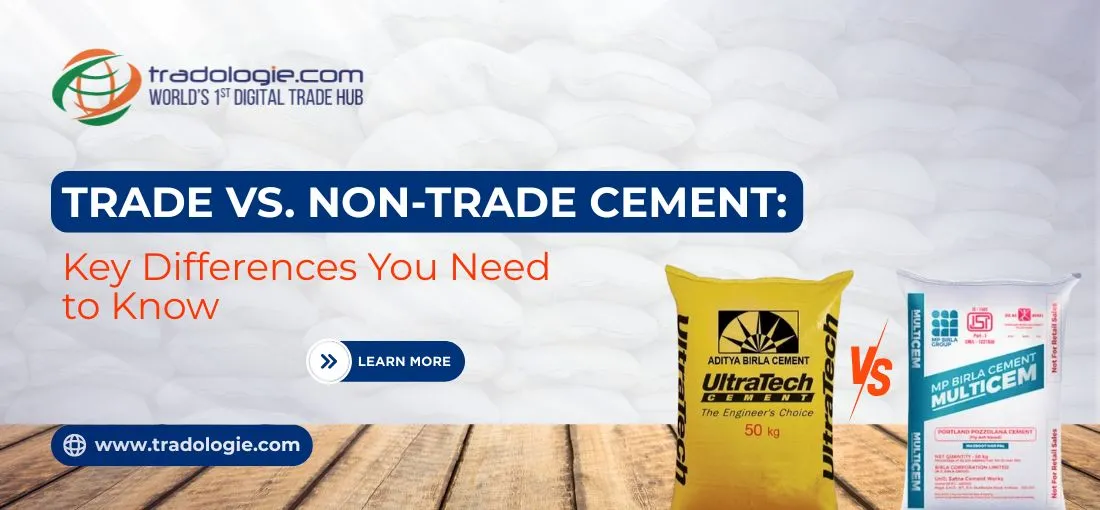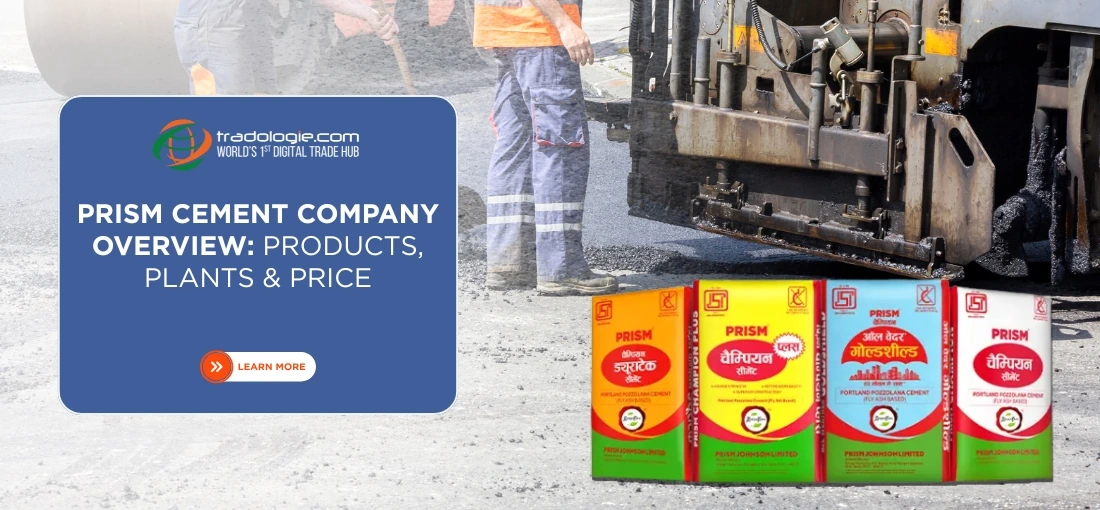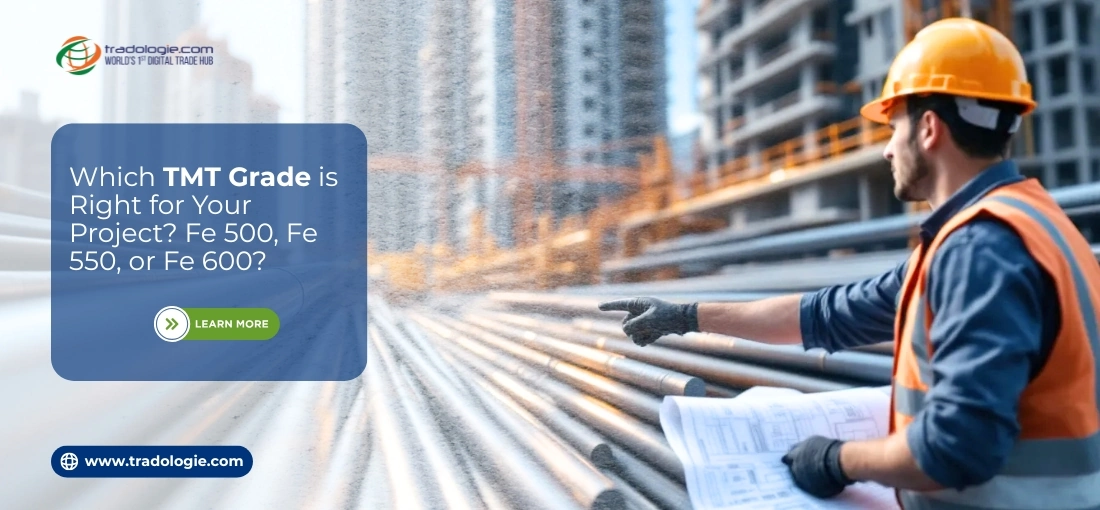Trade vs. Non-Trade Cement: Key Differences You Need to Know
If you are a contractor, builder, or someone who deals in bulk cement, then you definitely might be familiar with terms like PPC and OPC cement. In fact, these are the two most standard categories of cement available in the market. Both are widely used and cater to diverse requirements based on their composition and applications in different infrastructure projects. However, have you heard of the difference between trade and non-trade cement? If you haven't, then you definitely must know as a contractor. Understanding this difference can significantly impact your project planning and budgeting and decision to buy cement in bulk.
Keep reading this informative blog if you want to know the difference between trade and non-trade cement. By the end of this read, you will have a clear understanding of their characteristics, usage, and purchasing methods. So, let us get the ball rolling.

A Brief About Non-Trade Cement
A non-trade cement is just like any ordinary cement both in terms of quality and applications. It retains the same binding properties, strength, and durability as any other standard cement. However, it is a not-for-sale cement. This means, you cannot sell this cement like a normal trade cement available in the shops, but can only use it for construction projects. Unlike trade cement, non-trade cement is specifically targeted for direct use and not for retail distribution.
This cement is most commonly manufactured for big construction projects by cement companies. These projects may include bridges, highways, large residential complexes, or industrial facilities where large quantities of cement are required. The production and supply of non-trade cement are often streamlined to meet specific project timelines.
Buying a Non-Trade Cement
Non-trade cement, unlike trade cement, cannot be purchased in smaller quantities; it can only be purchased in bulk. Most cement companies have a minimum order quantity defined, and you as a contractor or a builder cannot buy below. This makes it suitable for large-scale projects where a steady supply of cement is needed to ensure smooth operations. Additionally, buying non-trade cement involves a direct transaction with the cement company or its authorized agents. This eliminates intermediaries, ensuring a more transparent purchasing process. So, if you want to buy cement in bulk, for your big construction project, a non-trade cement can be the most cost-effective option.
The Difference Between Pricing
A non-trade cement is usually less expensive than a trade cement available in the market. This is because there isn't any commission from dealers in between. The absence of middlemen reduces the overall cost, making it an economical choice for contractors. In fact, this cement is among the most cost-effective options for contractors who work on big construction projects.
The lower pricing does not compromise on quality, as non-trade cement adheres to the same manufacturing standards. However, the cost advantage becomes significant when large quantities are purchased, allowing contractors to allocate their budget more effectively to other aspects of the project.
From Where to Buy Non-Trade Cement
A non-trade cement is sold only either by the cement company directly, or by official third-party agents. These agents are usually appointed by the manufacturers to ensure proper distribution and compliance with contractual terms. Buying non-trade cement requires having a set of important documents for the authentication of a virtual code. This authentication process ensures that the cement is delivered to the intended buyer and prevents unauthorized resale.
Platforms like Tradologie.com facilitate its bulk procurement easily. Tradologie.com not only eases and streamlines the purchasing process. But, it also provides a secure platform to connect with verified suppliers. The platform's ability to facilitate large orders with ease and efficiency makes it a perfect choice for contractors and builders looking for a hassle-free procurement experience.
Conclusion:
So, in conclusion a non-trade cement is just like a trade cement available in the market. However, it is intended to bulk sell directly for big construction projects; it cannot be sold by the shopkeepers and dealers. Its procurement is facilitated either directly by the cement company or an official third party agent.



.webp)

.webp)